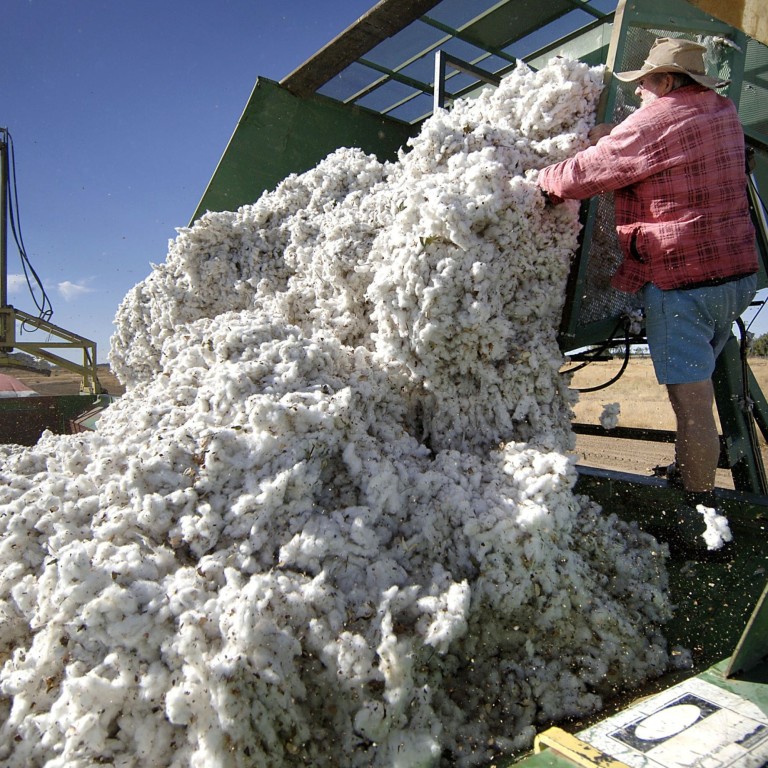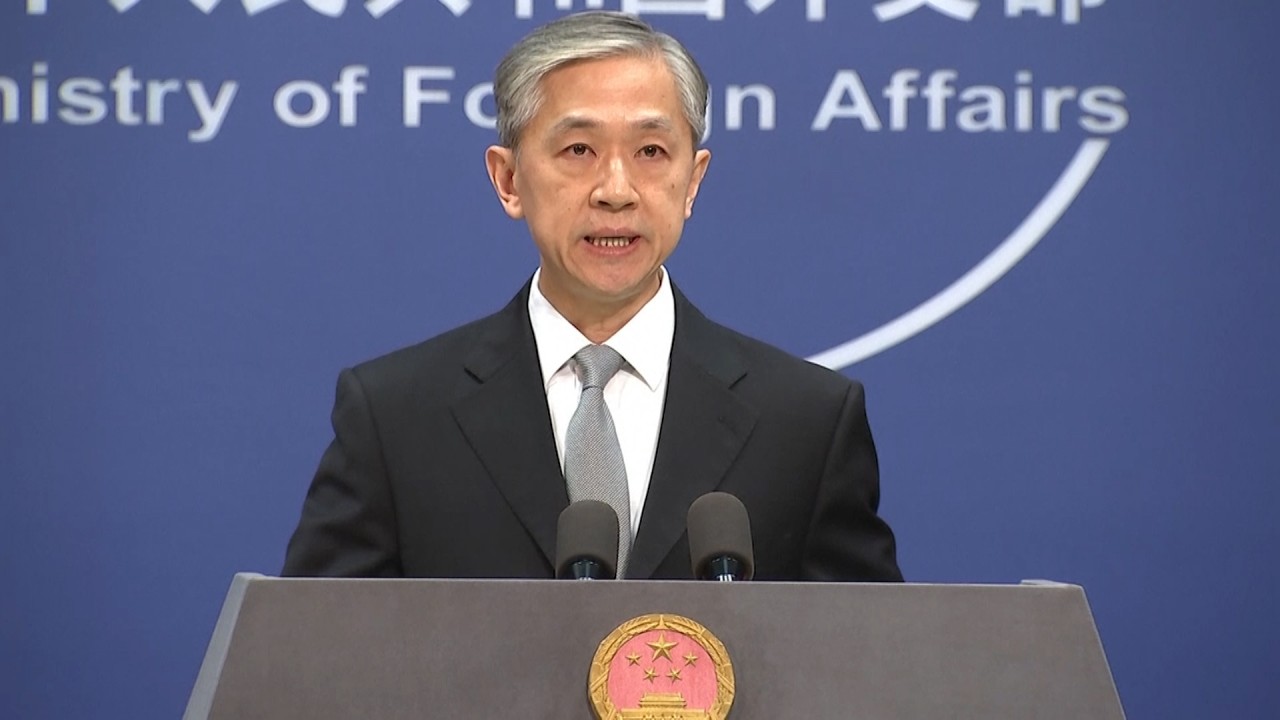
Australia’s US$750 million cotton trade with China targeted, with mills ‘discouraged’ from purchases
- Cotton Australia and the Australian Cotton Shippers Association confirm reports of a verbal directive for Chinese spinning mills to stop using Australian cotton
- It emerged at the weekend that China had also verbally told steel mills and power stations to stop buying Australian coking and thermal coal
One of Australia’s most China-dependent exports, cotton, has become the latest product to be targeted, Australian industry groups said on Friday, joining a growing list that already includes coal, barley, wine and beef.
Cotton Australia and the Australian Cotton Shippers Association confirmed reports that China’s National Development Reform Commission (NDRC) has been “discouraging” Chinese spinning mills from using Australian cotton.
There has been no official confirmation from the Chinese management agency that sits under the State Council, and both industry groups are investigating.
The value of Australia‘s exports of cotton to China in 2019 was roughly US$750 million.
To now learn of these changes for Australian cotton exports to China is disappointing
“Our industry is working with the Australian government, including the trade and agriculture ministers’ offices, to investigate the situation and fully understand what is going on,” the two groups said in a joint statement.
“Our industry’s relationship with China is of importance to us and is a relationship we have long valued and respected. To now learn of these changes for Australian cotton exports to China is disappointing, particularly after we have enjoyed such a mutually beneficial relationship with the country over many years.
“The Australian cotton industry will continue having meaningful conversations with stakeholders to fully understand this situation, and we will continue working with the Australian government to respectfully and meaningfully engage with China to find a resolution.”
Almost all of Australia’s cotton is exported, according to the Australian Cotton Shippers Association, but if China proceeds with an official ban, it would represent a significant blow to the industry, as China accounts for more than 65 per cent of the sector’s exports.
In a submission to an Australian inquiry about trade diversification in July, the association said the industry was aware of its dependence on the Chinese market and often sought to diversify its trade, but China remained the consistent main source of demand and has proved to be a fair buyer by offering acceptable trade terms and honouring purchases despite market movements.
“For the past 10 years, China has been the single largest buyer of Australian cotton. This demand has been welcomed by the Australian cotton industry. It has resulted in higher prices for raw cotton, improved net farm incomes, improved the wealth of local farming communities, and played a part in increasing land and water values,” the association said in its submission earlier this year.
“Our continued reliance on China is a clear testament to the general inability for [Australian] suppliers of bulk agricultural products to generate demand.”
Timeline: China-Australia relations
Steel mills and power stations have since been turning down deliveries of orders already placed and redirecting shipments.
Australian trade minister Simon Birmingham and agriculture minister David Littleproud said they were aware of the latest development, and were also seeking clarification.
Impeding the ability of producers to compete on a level-playing field could constitute a potential breach of China’s international undertakings
“Our cotton exporters have worked hard to win contracts and establish themselves as reliable suppliers of high-quality cotton in the Chinese market, which is an important input for many Chinese businesses,” they said in a statement.
“China should rule out any use of discriminatory actions against Australian cotton producers. Impeding the ability of producers to compete on a level playing field could constitute a potential breach of China’s international undertakings, which would be taken very seriously by Australia.”

01:28
Banning entry to two Australian academics is "within China's sovereign right", Beijing says
Two-way trade between the countries was worth about A$240 billion (US$172 billion) from July 2019 to June 2020, according to the Australian Bureau of Statistics.
In the year to September, China’s imports from Australia were down by 6.3 per cent compared with a year earlier, but China’s overall imports were down by 14.8 per cent, according to James Laurenceson, director of the Australia-China Relations Institute.

